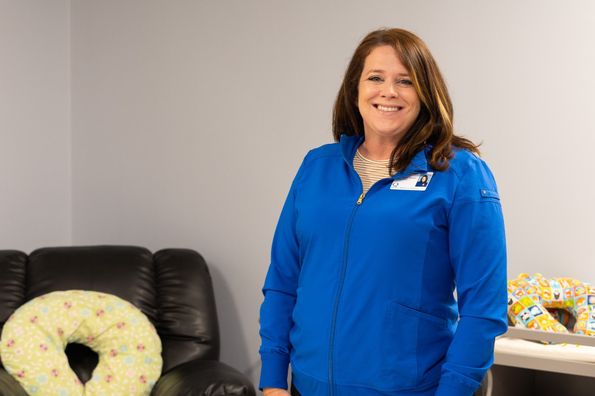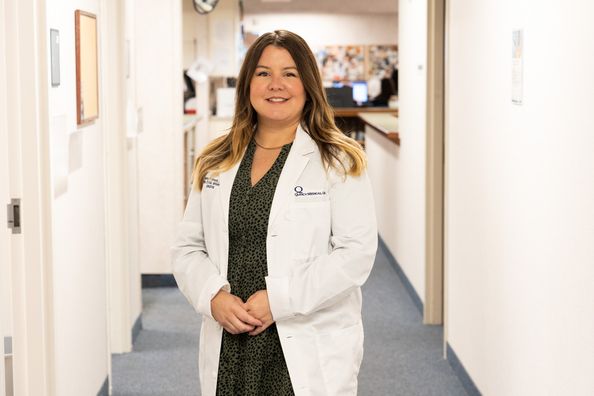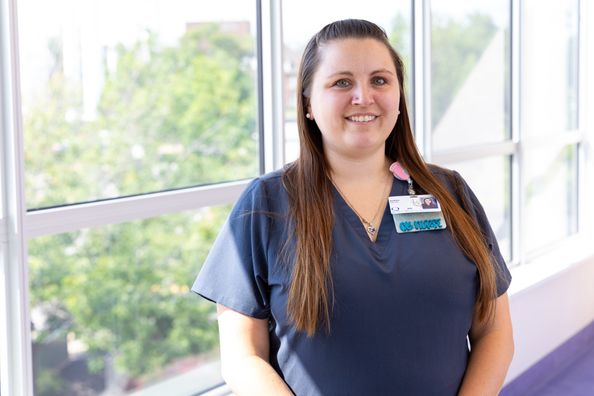When you think of breastfeeding support, speech therapy might not immediately come to mind. However, speech-language pathologists (SLPs) play a crucial role in addressing swallowing and feeding concerns that your infant may experience.
Anne Z., a speech-language pathologist at Quincy Medical Group (QMG), explained, “SLPs play a critical role in the assessment, diagnosis, and treatment of infants and children with swallowing and feeding disorders. An SLP who specializes in feeding and is trained in infant care can provide valuable support to families both prenatally and postnatally.”
A trained SLP conducts a comprehensive assessment by evaluating the infant’s readiness for breast and bottle feeding, assessing the latch, and providing education to caregivers about feeding. They also evaluate the infant’s physiological stability, motoric stability, and behavioral state.
“From that assessment, we can determine how breastfeeding may be impacted by structural abnormalities and tone or alignment issues,” Anne added.
Here are some signs that nursing mothers should watch for, which may indicate potential concerns:
- Engorgement, sore nipples, mastitis, clogged ducts, flat/inverted nipples
- Sucking, swallowing, and breathing in coordination
- Weak suck
- Breathing disruptions or apnea during sleep
- Excessive gagging or recurrent coughing during feeds
- New onset of feeding difficulties
- Diagnosis of disorders associated with dysphagia
- Weight loss
- Severe irritability or behavioral problems during feeds
- History of recurrent pneumonia and feeding problems
- Concerns about possible aspiration during feeds
- Lethargy or decreased arousal during feeds
- Prolonged feeding times (over 30 – 40 minutes)
- Nasopharyngeal reflux (backflow during feeding)
- Delayed feeding developmental milestones
If you have concerns, start by consulting your primary care provider, who can make a referral to Pediatric Therapy. For questions, you can contact Anne at (217) 222‑6550, ext. 3418.
Health Topics:







